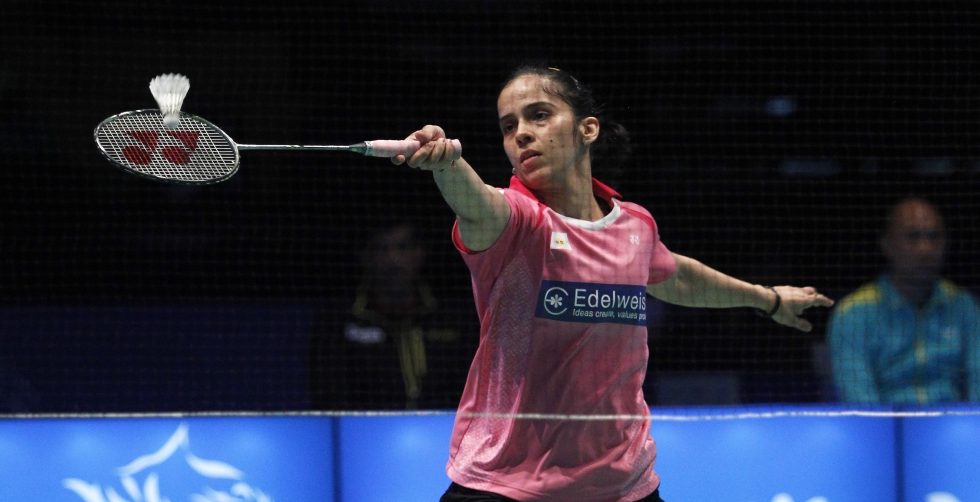
Top Guns Ready to Fire
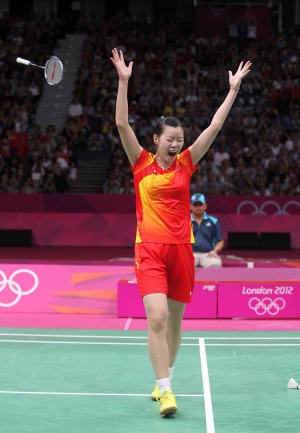 Li Xuerui and Wang Yihan were the two shining Women’s Singles stars of London 2012; their all-China final showcasing the nation’s dominance in that category.
Li Xuerui and Wang Yihan were the two shining Women’s Singles stars of London 2012; their all-China final showcasing the nation’s dominance in that category.
Four years on, the two are still around, but only the most optimistic of their fans will predict another Li-Wang final. The category has changed unrecognisably, and while Li and Wang are still formidable, a number of equally talented and feisty characters have sprung up around the world.
In the couple of years following London 2012, Li, Wang and compatriot Wang Shixian were among the most successful Women’s Singles players on the circuit, but over the last two years, the discipline has seen revolutionary transformation. Meanwhile, Li and Wang have had modest success in the run-up to the Rio Olympics. Wang hasn’t won a World Superseries title since April 2014; Li has been more successful, but hasn’t been atop the podium since November 2015.
Still, the Olympics is a different ballgame altogether, and the Chinese’s experience and ability to rise to the occasion will count. With Li in the top half of the draw and Wang in the bottom half, another all-China final can hardly be ruled out.
“I’m feeling fit; there’s no pressure, I’m just trying to treat it like another tournament,” said defending champion Li, appearing quietly confident.
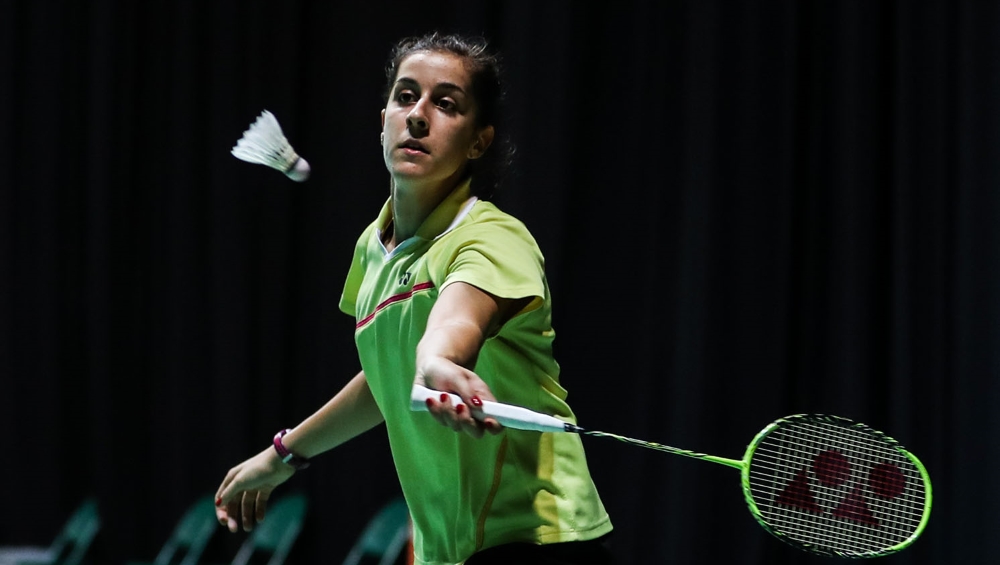
Wang was in a ‘wait-and-watch’ mode. “Let things start and we’ll see how it goes,” Wang said. “I’m feeling good about myself. There’s no point in being in the Olympics if you’re not confident.”
The competition to China comes from several competitors – some experienced, others youthful. While Saina Nehwal (India), Ratchanok Intanon (Thailand) and Sung Ji Hyun (Korea) can bank on experience, others, like Spain’s Carolina Marin, Chinese Taipei’s Tai Tzu Ying and Japan’s Nozomi Okuhara, have struck their top form relatively recently.
Two-time World champion Marin, despite her quiet form this season, has the winning ability and the skills to deliver a historic gold for Spain.
“I’m in my best condition,” Marin said. “I’m eager to start the competition. I feel comfortable with my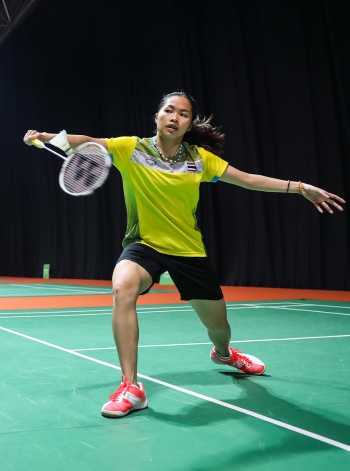 group. There might be difficult matches, but I plan to control everything.”
group. There might be difficult matches, but I plan to control everything.”
Nehwal, bronze medallist at the last Olympics, re-emerged in late 2014 after a downhill slide and has, in recent times, looked to add to her repertoire of strokes and technical variations.
“Against players like Li Xuerui and Ratchanok for instance, you cannot stick to one thing. I’ve been moving pretty well, but my strokes have always been an issue, so I have been working on my drops and half-smashes,” said the Indian, who has benefitted from a computer software that identifies her technical vulnerabilities.
Her Australian Open victory, the last Superseries before the Olympics, has given her a shot of confidence ahead of the Olympics.
“It was a bit of a relief,” Nehwal said. “My last final before that was in China last year. I was frustrated with the semi-final finishes. It was a good win, it came after so long. But in every tournament you have to start afresh.”
“It’s never easy to play the Olympics. Even if you want to keep it away from your mind and try to believe that it’s a normal tournament, it will not happen. From somewhere news will come that it’s the Olympics and you have to perform… the Olympics is special because it’s the third time. Last time was great because of the medal. I will want to give my best.”
Nehwal is in a relatively easy group and is likely to make the last 16 against Thailand’s Porntip Buranaprasertsuk. “The draw is tough. Porntip is in great shape, she created a couple of upsets in Malaysia. Next might be Li Xuerui… it’s a tough draw, I want to focus on one match at a time.”
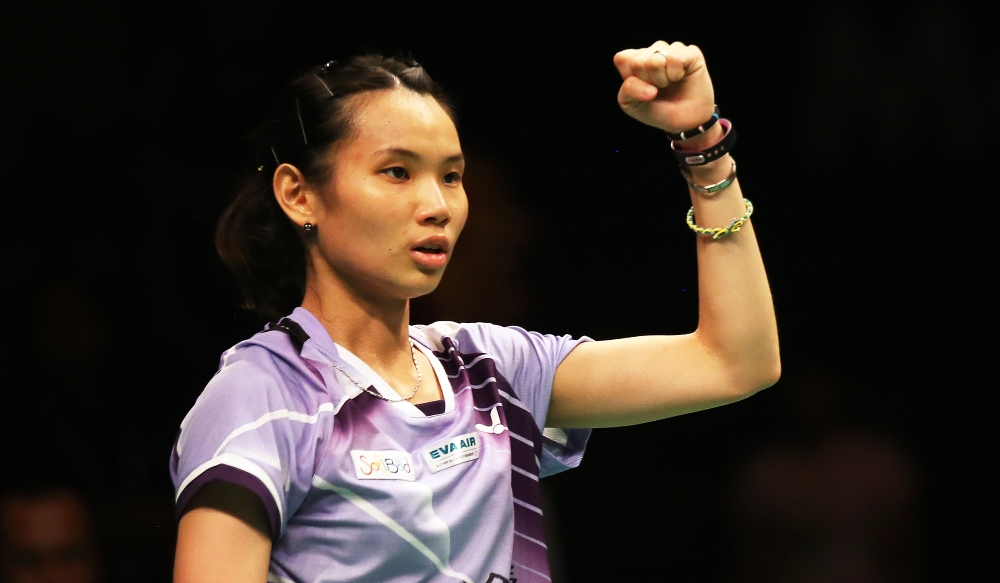
The principal protagonists in the lower half of the draw are, alongside Wang, Tai Tzu Ying (Chinese Taipei), PV Sindhu (India), Ratchanok Intanon (Thailand) and Nozomi Okuhara (Japan). Intanon, who had a trail-blazing season, said she badly wanted to win a medal for her fans in Thailand.
“I had a difficult phase in my training because I could not train for one week,” Intanon said, referring to the doping-related charge of which she was cleared. “I’m thankful to WADA and BWF that my name was cleared and I could get back. I thank all my fans in Thailand and all over the world who supported me. I feel a great motivation to do well and get a medal for Thailand. The draw is quite tough. I’m only thinking of my group matches. Yip Pui Yin can be a tough opponent in my group. If I win my group I might play Akane (Yamaguchi), and after that, maybe Nozomi (Okuhara). My half has players like Tai Tzu Ying, Sindhu and Wang Yihan, so it looks difficult.”
The season has been tough and demanding, but most of the top contenders have arrived injury-free and hungry for success. Everything points to exhilarating contests for the Women’s Singles crown.
Olympic and Paralympic News

Zhang & Wang: Stars With Different Legacies 4 June 2023
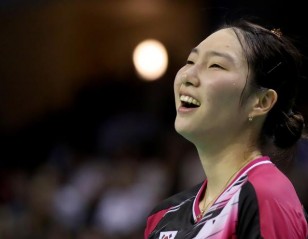
Sung Energised by Recent Successes 1 March 2017
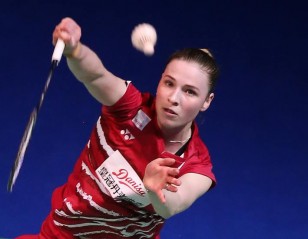
Line Kjaersfeldt Targets GPG Success 20 February 2017
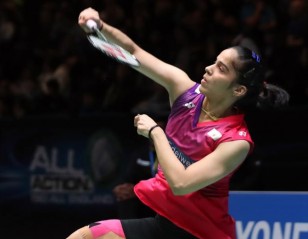
Saina Nehwal: ‘I Feel Lighter On Court’ 20 January 2017

Zwiebler Hungry Despite Setbacks 18 January 2017
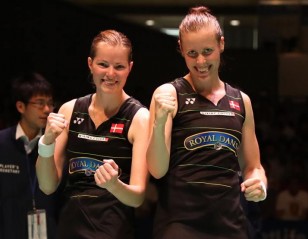
Danish Duo Relish Rio Memories 17 January 2017
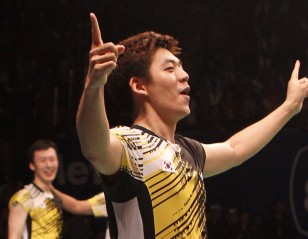
Men’s Doubles – 2016 in Review 27 December 2016
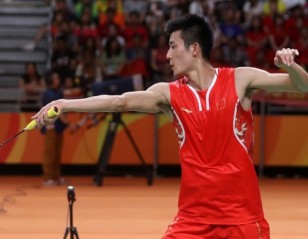
Badminton Leads China Ratings 1 September 2016
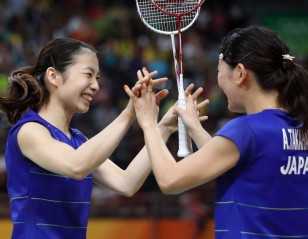
Badminton on Olympic Channel 30 August 2016
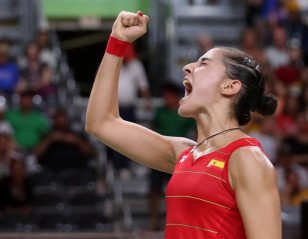
European Resurgence in Rio 26 August 2016
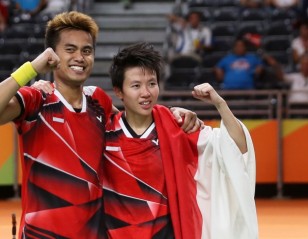
Bouncing Back in Style 25 August 2016
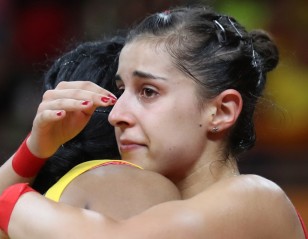
A Revolution in Rio 21 August 2016
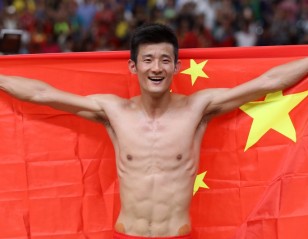
Lee’s ‘Long’ Suffering Continues – Men’s Singles Final: Rio 2016 20 August 2016
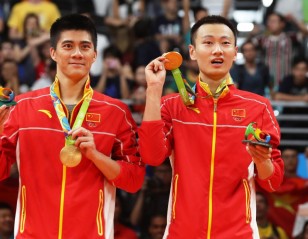
Serves – Malaysia, Wrong! – Men’s Doubles Final: Rio 2016 19 August 2016
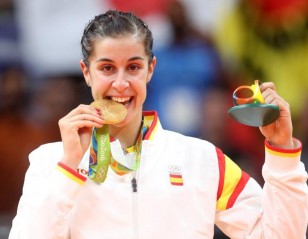
Latina Carolina Reigns! – Women’s Singles Final: Rio 2016 19 August 2016
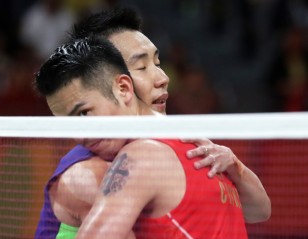
Lin Dan Dethroned – Men’s Singles Semi-finals: Rio 2016 19 August 2016
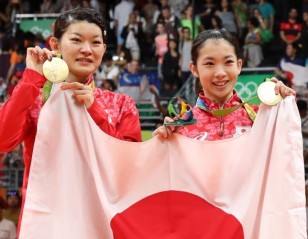
Golden First for Japan – Day 8 – Women’s Doubles Final: Rio... 18 August 2016
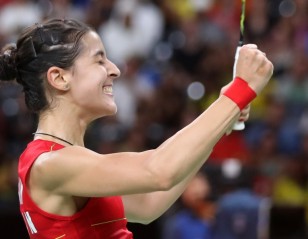
Marin-Sindhu Battle for History – Women’s Singles Semi-finals: Rio 2016 18 August 2016
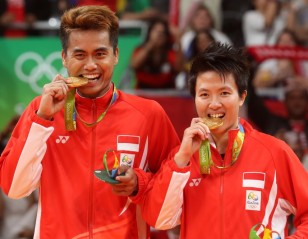
Golden Day for Indonesia – Mixed Doubles Final: Rio 2016 17 August 2016
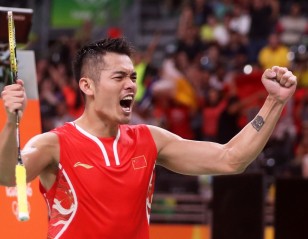
Lin Survives; Lee Cruises – Day 7 – Men’s Singles Quarter-Finals: Rio... 17 August 2016
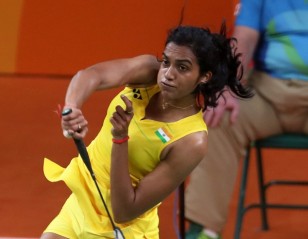
Sindhu Sizzles into Semis – Day 6 Session 2: Rio 2016 17 August 2016
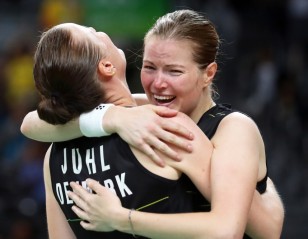
History-Making Danes Thwart China – Day 6 Session 1: Rio 2016 16 August 2016
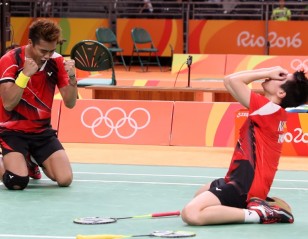
China’s Doubles Giants Humbled – Day 5 Session 2: Rio 2016 15 August 2016
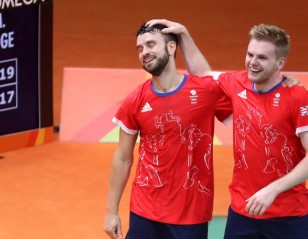
Fu/Zhang Ride Out Storm – Day 5 Session 1: Rio 2016 15 August 2016
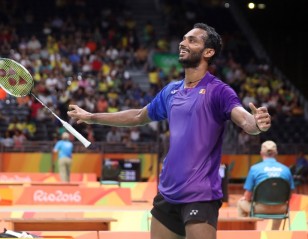
Jorgensen Chugs On – Day 4 Session 2: Rio 2016 15 August 2016

Quarter-Finals Drawing Attention – Rio 2016 15 August 2016
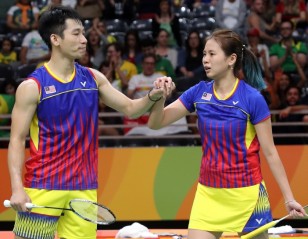
Chan/Goh in Semi-finals – Day 4 Session 3: Rio 2016 14 August 2016
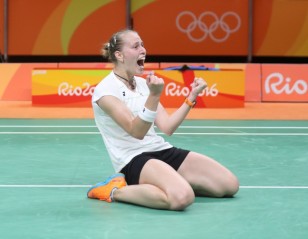
Nehwal Falls to Ulitina – Day 4 Session 1: Rio 2016 14 August 2016
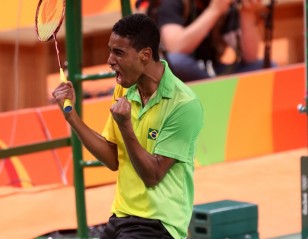
Brazil Badminton Grabs Spotlight 14 August 2016
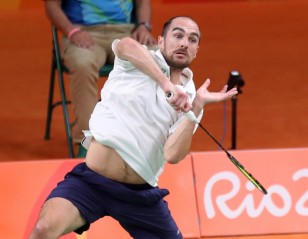
Evans Shakes Off Oliveira – Day 3 Session 3: Rio 2016 13 August 2016
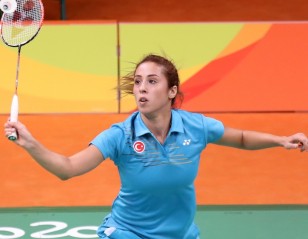
Ellis/Langridge Through – Day 3 Session 2: Rio 2016 13 August 2016
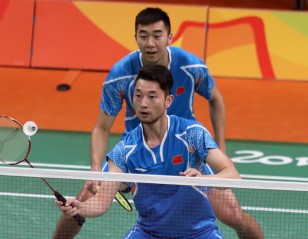
World Champs Out – Day 3 Session 1: Rio 2016 13 August 2016
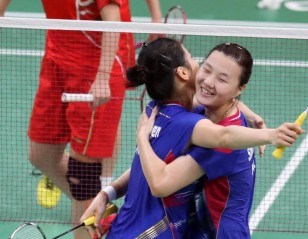
Koreans Double Their Account – Day 2 Session 3: Rio 2016 12 August 2016

Ivanov/Sozonov in Quarters – Day 2 Session 2: Rio 2016 12 August 2016
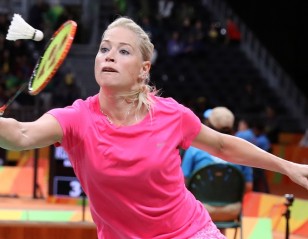
Mixed Doubles Drama in Group B – Day 2 Session 1: Rio... 12 August 2016
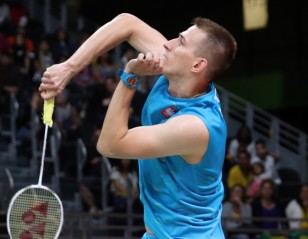
Cordon Falls to Dziolko – Day 1 Session 3: Rio 2016 12 August 2016
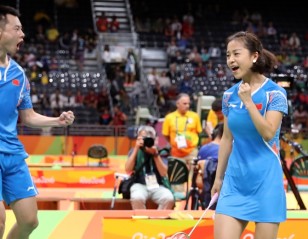
Xu/Ma Stage Escape – Day 1 Session 2: Rio 2016 12 August 2016
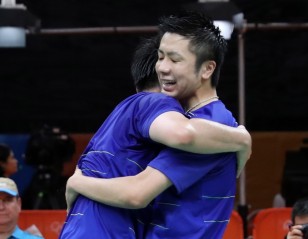
Endo/Hayakawa Clinch Thriller: Day 1 Session 1 – Rio 2016 12 August 2016
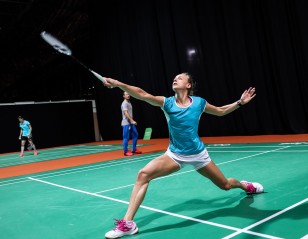
Double Duty in Rio! 11 August 2016
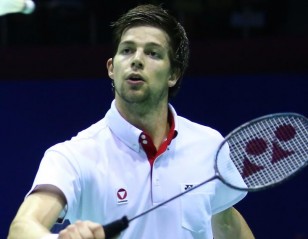
Under No Illusions 10 August 2016

Danes Hope to Capitalise on Strong Season 10 August 2016

A New Carolina, Says Rivas 9 August 2016
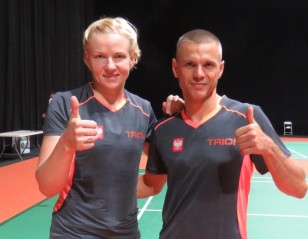
Fifth Olympic Salvo for Mateusiak 8 August 2016
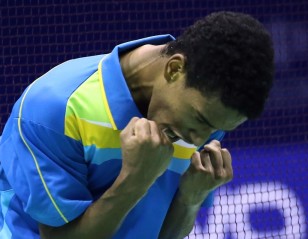
Savouring the Olympic Flavour 6 August 2016

Singles Preview: The Promise of Epic Battles 6 August 2016
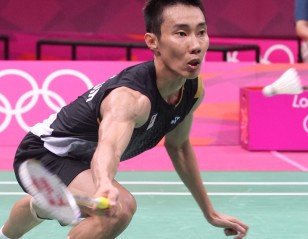
A First for Flag-Bearer Lee 4 August 2016
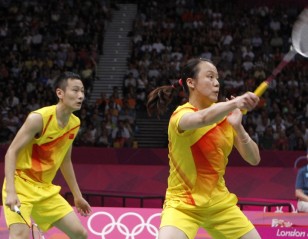
Zhang/Zhao the Opening Act 3 August 2016
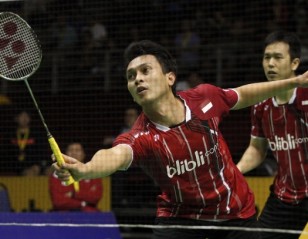
Doubles Preview: Group Surprises Lurk for the Unwary 1 August 2016
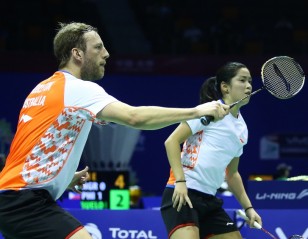
Rio Countdown: Aussies Living a Dream 29 July 2016
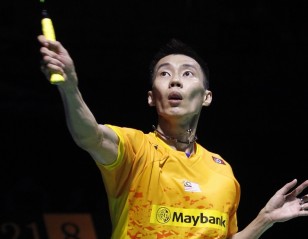
‘One Match at a Time’ 28 July 2016
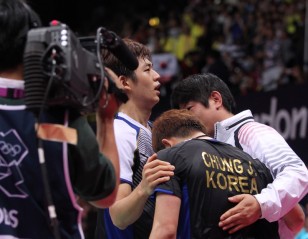
Olympic Channel Launch on August 21 28 July 2016

Rio Countdown: Ygor Oliveira’s Samba Secret 28 July 2016
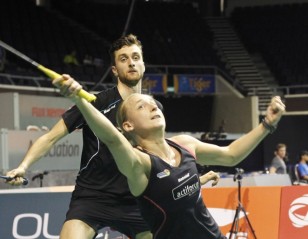
Rio Countdown: Dutch Duo Seek to Re-create Magic 27 July 2016
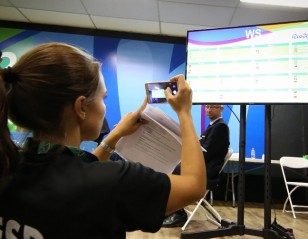
Contenders Brace for Hard Battles 27 July 2016
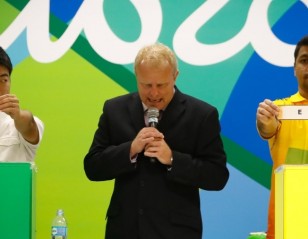
Possible Lee-Lin ‘Semis’ Showdown 27 July 2016
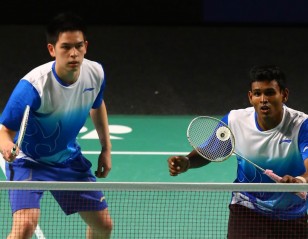
Rio Countdown: Australian Duo Look to Make Impact 26 July 2016
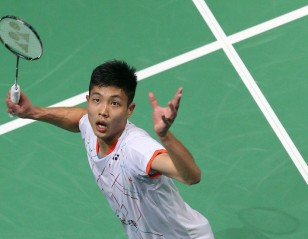
Rio Countdown: Chou Riding High on Confidence 25 July 2016

Mechanics of the Olympic Draw 22 July 2016
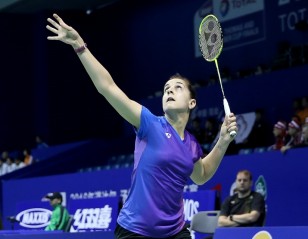
Lee, Marin Lead Seedings 21 July 2016
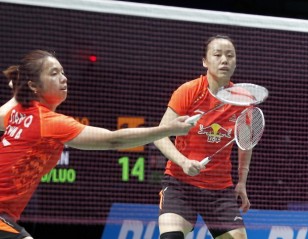
No Rio Repeat for Olympic Champs 19 July 2016

BWF Launches Olympic Website 11 July 2016
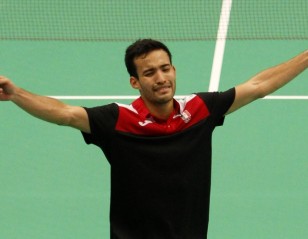
Mexico Completes Olympic List 5 July 2016

Australia Make Rio Picks 10 June 2016
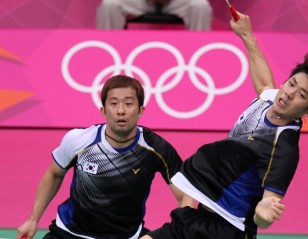
Badminton to Feature in Olympic Channel Programming 7 June 2016
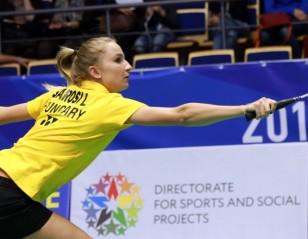
Trio Get Rio 2016 Tripartite Places 25 May 2016
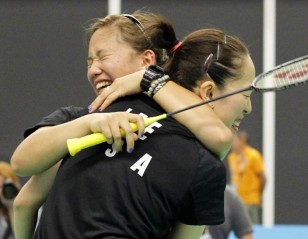
Provisional List of Olympic Qualifiers Published 5 May 2016
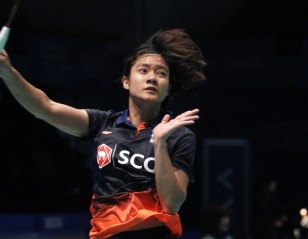
Continental Championships: The Home Stretch to Rio Begins 24 April 2016
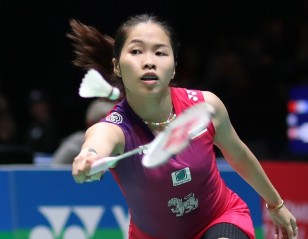
Calmer, Tougher Intanon Believes She Can Get Better 19 April 2016
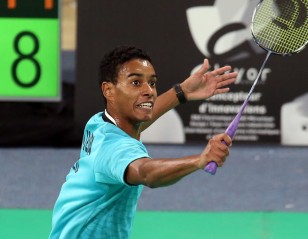
Ygor Oliveira’s Samba Secret 8 April 2016
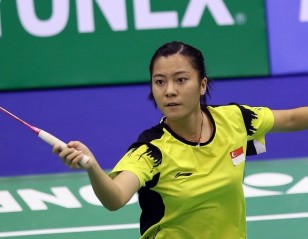
Liang Xiaoyu Sniffs Olympics Chance 15 March 2016
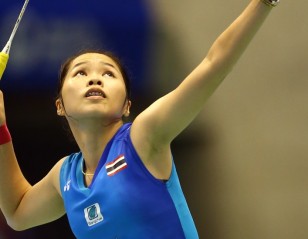
Intanon Ready for Battles Ahead 2 March 2016
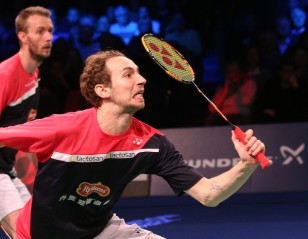
Race to Rio: Close Call for Doubles Contenders 18 January 2016
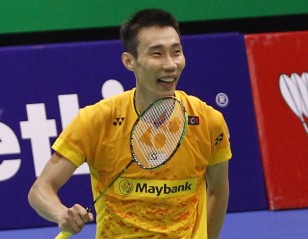
Race to Rio: Chen Leads, Lee Close Behind 14 January 2016

Special Olympics Embrace BWF Shuttle Time 26 October 2015

Høyer: Innovation and Integrity Key Ingredients 16 May 2015
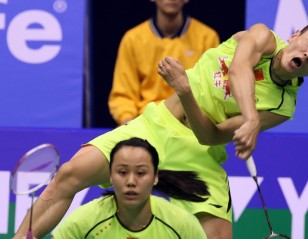
Rio 2016: The Race Begins 4 May 2015



















